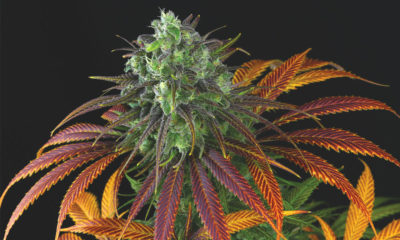
Medical
CBD May Help With Nicotine Addiction, New Science Suggests
Emerging research suggests that CBD can alter memory patterns associated with addictive behaviors and can potentially help people kick their nicotine habit.
When it comes to the much-hyped cannabinoid named cannabidiol (CBD), scientists seem to constantly be researching new medical applications for the chemical compound.
One of the most surprising new findings? CBD may help break patterns of addiction, at least according to a recent study published in Addiction, a peer-reviewed scientific journal. The study, released in May 2018, suggests that CBD may reduce craving triggers in nicotine addicts who were given just a single dose of the cannabinoid. In the study, regular cigarette smokers were given either CBD or a placebo. Those given the cannabinoid were less stimulated by tantalizing images of cigarettes and tobacco products.
But, why? As it turns out, the molecule may have the ability to rewrite memories related to habitual behaviors. If the researchers’ theories prove correct, this remarkable quality may make the compound useful in treating addiction. This includes dependencies on one of the most addictive drugs on the market: nicotine.
The Mind-Bending Nature of CBD
Memory has a way of shaping behavior in profound ways. While memory is essential for survival and allows us to make predictions about the future, this vital skill can sometimes lead to the formation of bad habits. Cigarette consumption is an excellent example. The more often you break out tobacco to relieve stress during an afternoon work break, the more that cigarette acts a reward when things become a little overwhelming. The more rewarding the cigarette, the more smoking becomes linked to stress relief in your subconscious memory. As you continue to relieve your daily stress with cigarettes, the more likely you are to crave them when exposed to certain habitual cues. Experience, behavior, and environment become entangled in one another, creating a habitual behavior.
In the study mentioned above, researchers used enticing images of cigarettes to test whether or not CBD treatment caused changes in the way nicotine addicts responded to cues that would normally cause cravings. When compared to those given a placebo, participants given 800 milligrams of CBD found images of cigarettes less pleasant.
Fascinatingly, experimental evidence provides some explanation for why regular smokers might find cigarettes less appealing after CBD. Emerging research suggests that cannabinoids may alter this process of habit formation, calling interference between memory formation and repeated behavior. As a 2017 review published in the journal Neuroscience suggests, the endocannabinoid system may be able to disrupt a process known as memory reconsolidation. Memory reconsolidation is when the brain recalls a memory and then edits the memory to ensure its accuracy, making small changes and corrections necessary. While the exact way cannabis alters memory is unknown, cannabis seems to work its magic during this memory reconsolidation process, essentially unlinking the memory bridge between behavior, environment and reward.
Science Suggests CBD May Reduce Nicotine Addiction
The topic of memory reconsolidation may seem complex, but the impact of CBD on addictive behaviors was first demonstrated in animal models almost a decade ago. For example, a 2009 study published in the Journal of Neuroscience found that CBD treatment did not reduce the amount of heroin mice self-administered in laboratory tests. Instead, the cannabinoid seemed to reduce the heroin-seeking behavior in the rodents after they were exposed to environmental cues that would normally inspire cravings.
These positive effects aren’t limited to rodents. Large-scale trials on CBD as a cigarette alternative are lacking, but the few human studies conducted thus far have been promising. In fact, one small experiment, published in the journal Addictive Behavior back in 2013, found that inhaling the cannabis-derived molecule reduced cigarette consumption by up to 40 percent.
When it comes to whether or not the molecule can legitimately curb cravings and end nicotine addiction for good, the evidence is out. Yet, what is most astounding about this research is perhaps the remarkable way that cannabis may help those with addictions and substance abuse disorders. The molecule may or may not directly break a nicotine habit, but this early evidence suggests that it may make tolerating triggers a whole lot easier.
TELL US, do you struggle with nicotine addiction? Has cannabis helped?



















